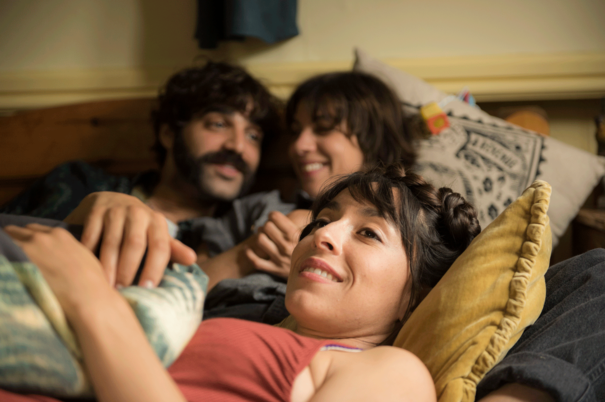The Possibility of a Family
Samuel Lagunas

Anchor and Hope
In this new film by Catalan director Carlos Marqués-Marcet (10,000 km), a grieving Eva (Oona Chaplin) buries her cat in the backyard of the house of her mother Germaine (Geraldine Chaplin), alongside her girlfriend Kat (Natalia Tena), which whom she shares a placid life on a houseboat, but not the desire to have a child.
Presented in four acts, ANCHOR AND HOPE seeks to be a romantic comedy and achieves its aim by a repertoire of jokes as varied as they are uneven (from the most basic scatological humor to the mocking, but hardly incisive, comment about the failure of women who went through the sexual revolution of the 1960s and ended up anchored in an empathetic conformism) and by recourse to the timeworn cliché of the romantic triangle, in the figure Roger (David Verdaguer), Kat’s best friend and a donor of his “little fish” to allow Eva (an obvious and tragic name) to get pregnant.
Indecisive, unbalanced, and with the stubbornly reticent cinematography of Dagmar Weaver-Madsen, the story wavers, like its claustrophobic setting ―the floating Eden that houses the characters―, between a defense of anomalous lesbian motherhood and a contented celebration of the traditional family that still adheres to gender conventions (and imperatives!), all resulting in a lukewarm moral: when all other loyalties have failed, the family reveals itself as a possibility and ―still more― as a hope. Nothing could be more innocuous, nothing more complacent.

